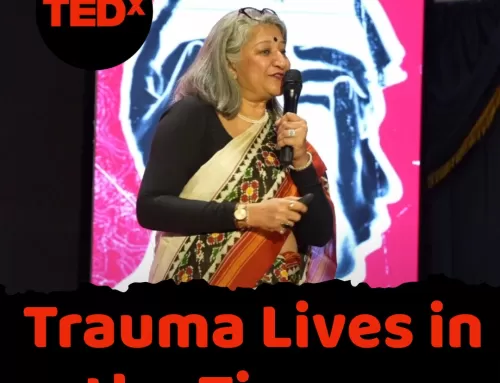ATTUNEMENT AND PROXIMATE SEPARATION – in context of stress and emotional health among adults.
As I read this today a lot of my clients who I have worked with came to my mind – it would explain a lot of ”whys” to some of you reading this. I wish I knew of this before my babies were born – I would have definitely handled them differently.
How many of us have been physically present but emotionally absent for our children? How many of us have stress related health issues but have no history of any abandonment , parental neglect or trauma ? How many of us feel we are not understood or appreciated for who we are and always need to be better and better ?? How many of you are planning to have small kids or already have small kids?
Pls do read this – (I have tried to keep it short but it’s still rather long!)
“It is intuitively easy to understand why abuse, trauma or extreme neglect in childhood would have negative consequences. But why do people develop stress related illness without having been abused or traumatised? These persons suffer not because something negative was inflicted on them but because something positive was withheld”

For any young warm blooded creature life is impossible without the parent. Parents are the biological regulators of the child’s immature psychological and emotional systems. Parental love is not simply a warm pleasant emotional experience, but is a biological condition essential for healthy physiological and psychological development. Parental love and attention drive the optimal maturation of the circuitry if the brain, the PNI system (psycho-neuro-immunology) and of the HPA axis .
The circuitry responsible for the secretion of important neurotransmitters like serotonin, norepinephrine and dopamine – essential for mood stability, arousal , motivation and attention – are stimulated and become coordinated in the context of the child’s relationship with its caregivers.
In the parent child integration is established the child’s sense of the world: whether this is a world of love and acceptance, a world of neglectful indifference in which one must root and scratch to have ones need satisfied, or worse, a world of hostility where one must forever maintain an anxious hyper vigilance. Future relationships will have as their template nerve circuits laid down in our relationships with our earliest caregivers.
Disruption of attachment relationships in infancy and childhood have long term consequences for the brains stress response apparatus and for the immune system – leads to exaggerated physiological stress responses in the adult. For satisfaction of attachment needs in human beings, more than physical proximity, touching is required.
Equally essential is a nourishing emotional connection , in particular the quality of ATTUNEMENT. Attunement is a process in which the parent is “tuned in” to the child’s emotional needs and is a subtle process. It is deeply instinctive but easily subverted when the parent is stressed or distracted emotionally, financially or for any other reason. Attunement May also be absent if the parent never received it in his or her childhood. Strong attachment and love exist in many parent-child relationships but without attunement, the children may feel loved but on a deeper level do not experience themselves as appreciated for who they really are. They learn to present only their “acceptable” side to the parent, repressing emotional responses the parent rejects and learning to reject themselves for even having such responses.
Infants whose caregivers were too stressed for whatever reasons to give them necessary attunement contact will grow up with a chronic tendency to feel alone with their emotions, to have a sense – rightly or wrongly- that no one can share how they feel, that no one can “understand”. We are speaking here NOT of a lack of parental love, nor of physical separation between parent and child, but of a VOID in the child’s perception of being seen, understood, empathised with and “got” on the emotional level. The phenomenon of physical closeness but emotional separation has been called PROXIMATE SEPARATION.
In proximate separation the parents are physically present but emotionally absent. Such parent child interactions are increasingly the norm in our hyper stressed society. The levels of physiological stress experienced by the child during proximate separation is of the same level experience by the child during physical separation. IT WILL NOT BE RECALLED LATER AS THE ADULT LOOKS BACK ON HIS CHILDHOOD EXPERIENCE, BUT IT IS ENTRENCHED AS THE BIOLOGY OF LOSS.
Experiences of proximate separation become part of the persons psychological programming : people ‘ trained’ in this way in childhood are likely to choose adult relationships that re-enact repeated proximate separation dynamics. They may, for eg choose partners who do not understand, accept or appreciate them for who they are. Thus the physiological stress induced by proximal separation will also continue to be repeated in adult life- and again, often without conscious awareness”
Excerpts from the book “WHEN THE BODY SAYS NO” – Exploring the stress disease connection- by Gabor Mate, M.D.
So moms – hug your babies, cuddle them, be emotionally present to their needs! No need to be the super efficient mothers who takes care of right calories, nutrition and hygiene, manners or etiquette or homework – try and be the mother who gives lots of touch, physical affection, warmth, comfort and who is just “present” for the child without the phone or other stresses!! Easier said than done, but never too late for those who wish to sincerely give it a try!!
Inner Child Integration therapy work at Wellness Space is all about healing these parts of us that have experienced or not experienced what they needed to – in the formative years and helping you heal.
Ririi Trivedi
Personal Transformation Therapist and Regression therapist (Inner Child and Past Life Regression)
www.wellness-space.net
#InnerChild
#Trauma
#Therapy






